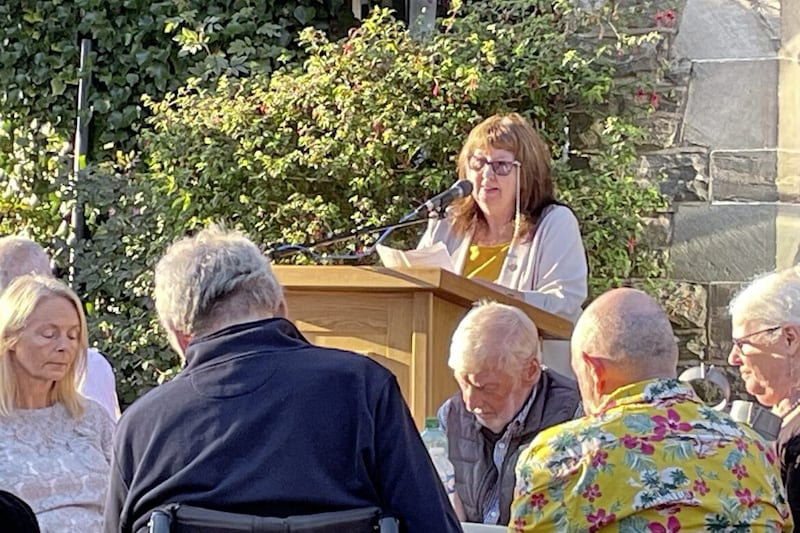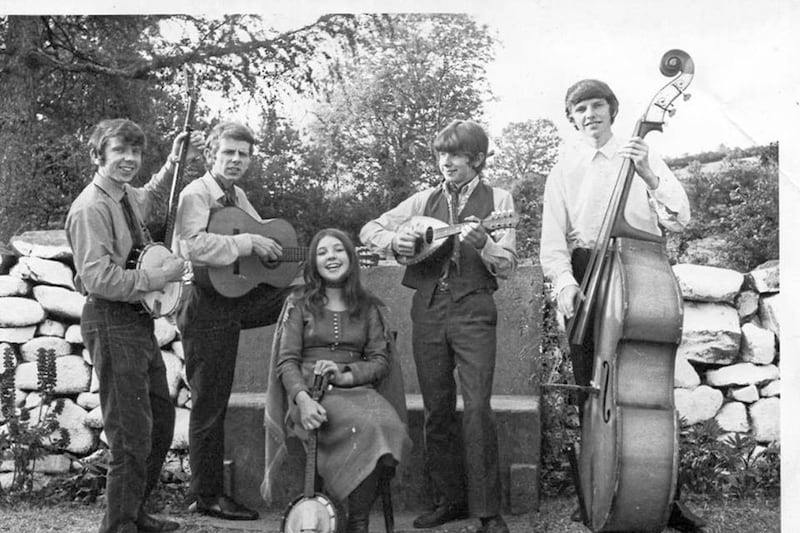TO TELL the truth, I’m not too keen on many songs about the Troubles here. I find a lot of them are worthy but twee. Then, one cold, wet, misty afternoon, I was travelling home along a mountain road and Cara Dillon’s album Sweet Liberty was on the CD player.
A pulsating piano grabbed my attention and then Cara started singing, first of all warning, “My song for you this evening, it's not to make you sad,” but it was too late. Tears were already welling up in my eyes.
As she sang of the killing of two young friends in There Were Roses, I began to cry. The song so perfectly captured the horror of what went on here for decades, how ordinary people were killed and the living brutalised. This was no bland denunciation of violence. It hit home like a hammer.
The song was, of course, written by Tommy Sands, about whom Derry socialist Eamonn McCann, writing in Hot Press, said: "It would take a mean b*****d to dislike him.”
Listening to the vitriol in the British Parliament last week, there might be many in Westminster who would dislike Tommy Sands because of his “humbug,” his underlying belief that every human being should be treated with dignity.
He is up there in the pantheon with Woody Guthrie and Pete Seeger. Indeed, Seeger considered Tommy, "the most powerful songwriter in Ireland, if not the rest of the world".
His songs have been translated into many languages and There Were Roses and Sisters and Daughters are currently included in the English language syllabus in German secondary schools.
When the world is being divided between us and them, Tommy provides us with the perspective we all need.
A new album release from Tommy Sands is always a special event but Fair Play To You All on Spring Records is perhaps one of his most special offerings of all. In Gathering of the Clans, Tommy takes on a very current topic.
“Despite ominous stirrings of racism and the raising of walls, people keep on keeping on, crossing borders and building bridges every minute of the day everywhere, yearning for good companionship,” he says.
On the song, Tommy is joined by his own clan and by his good friend Richard Parkes, pipe major with the Field Marshall Montgomery Pipe Band, who have been All Ireland and World Champions many times over.
My favourite line from the song is: 'And if we can’t agree, we can always let it be/A higher quality of disagreement.'
Tommy then tells of the inspiration behind the song, What’s going on in Jerusalem?
"'Back in North America,' said Dena Maltenskey, pouring me a coffee in her Jerusalem kitchen, ‘My father was thankful to have a home and a job after escaping the tyranny of Nazism. Thanks to McCarthyism, though, he lost that job and I, as a progressive young woman and expecting a baby, did not want to stay in such a place. Instead, like many idealistic others at the time, I headed for our new Jewish homeland in Israel.
"'I tried to teach my little boy what was right, sang him songs against war and hoped he would never have to fight in one. When he became 18 he had no choice. He was sent to Hebron.'
“She went on to explain that with others in his battalion he was asked to do things against the Palestinian people that were against what he had learned to believe. And so, he became part of the group 'Breaking the Silence'."
But Tommy is also happy to stray from the trials and tribulations of the here and now and delve into Ireland’s ancient history and culture – with a helping hand from the estimable Pádraigín Ní Uallacháin
Macha tells the story of the queen who cursed the men of Ulster for forcing her to run a race against the king’s horses while failing to acknowledge she was in the late stages of pregnancy.
“The story is well known in our rich and wonderful prehistory tradition,” says Tommy. “Failing to acknowledge hurt, never mind attempting to lament or make up for it, is a curse in any society and at any time which ripples into the current abuse of the environment around us. This caoineadh or lamentation is a musical nod in this direction.
“I have to thank the wonderful Pádraigín Ní Uallacháin for guiding me through the mystic fields both poetically and linguistically and to Steve Cooney for researching the original caoineadh melody from the 18th century blind harper Arthur O’Neill.
But of course, this is a Tommy Sands album and, as in the rest of the Co Down dynasty, there is a rich vein of humour running through their songs.
The extended family had to travel all over the place, home and abroad, playing music and Tommy, perhaps more than most. He certainly will have been in Every County On The Island!
“On my trips around Ireland my small children Fionan and Moya would often ask back-of-the-car questions like ‘What county are we in?’, ‘Where are we now?’ and ‘Are we nearly there?’
“Later the questions would become part of this song containing the name of every county hidden within, that we would sing together on a 32-county tour of Ireland in a month and a day.
“Go ‘Down’ to ‘Our ma’ ‘An trim’ her yellow hair
‘For a man a’ bove in ‘Derry’ will take her to the fair…” Geddit?
Tommy is also happy to address the optimism of the early folk revival of the 1960s. Given the state of the world, the protest songs of the 1960s haven’t had much of an impact. Was the answer really “blowing in the wind”? According to Tommy, sometimes there is a need to reimagine tradition and revisit history.
“We read in social media where David Cameron, in visiting post-Arab Spring Egypt to give a talk on democracy, brings with him seven arms dealers.
"And we see where Donald Trump sells $110 billion worth of arms to Saudi Arabia and we realise perhaps that the answer is not blowing in the wind at all... it is right there behind the headlines."
:: Tommy Sands's new album, Fair Play To You All, is released on Spring Records tomorrow.








